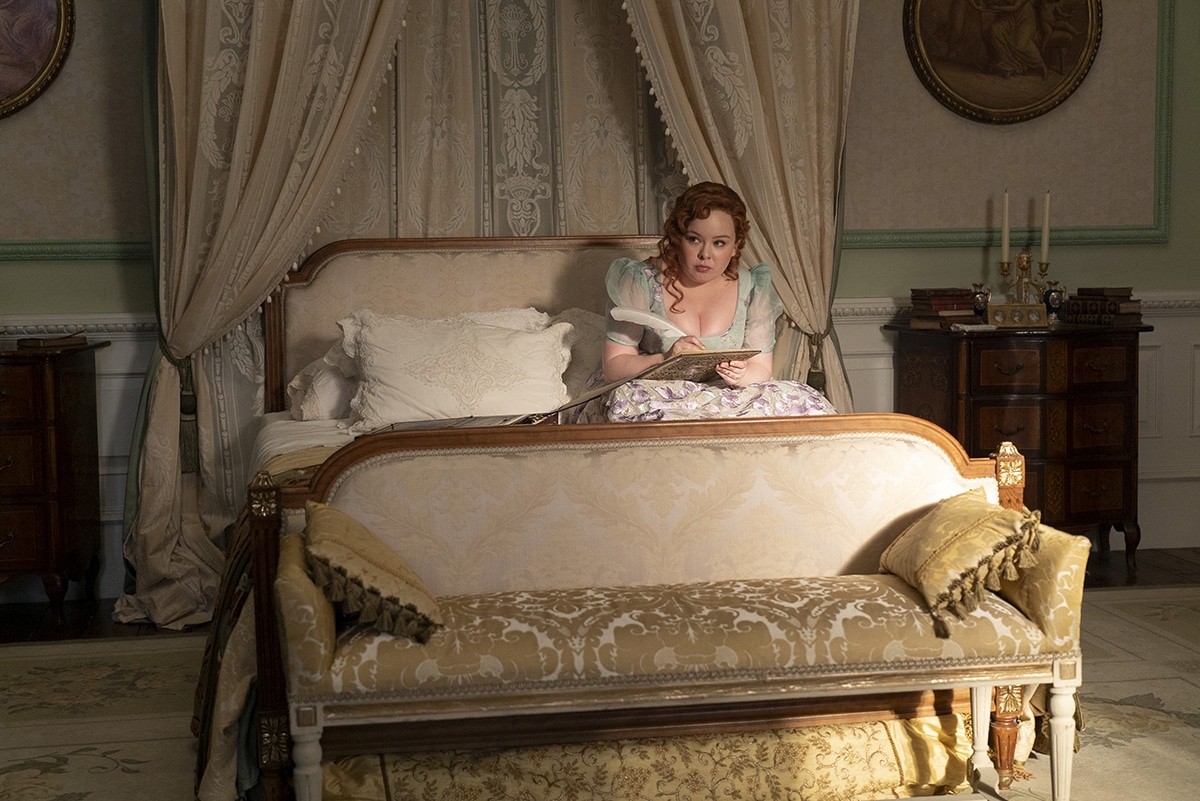Immigrant communities tend to place a high value on social standing, romantic relationships, familial bonds, and our reputation. Otherwise, we can expect to bring shame to our families and loved ones in our new country and abroad. Gossip and rumors can destroy this delicate balance – which is why I so relate to Netflix’s Bridgerton.
Chisme, as we know, is present in our family reunions, social gatherings with friends, school, religious institutions, and even jobs. It can form or ruin bonds. And though it can be harmful, it’s scientifically proven to help us get along better with others and is considered a social skill, provided you also know when to stop.
Growing up, I heard a version of the phrase “small minds discuss people.” Along with this, I often heard sexist, denigrating jokes about women, girls, and gossip. But like so many others, I did it anyway with people I care about. That’s why it was so fun to watch Bridgerton’s glamorous high society look forward to Lady Whistledown’s latest gossip.
Lady Whistledown has been a central character since before we knew her identity (she’s Penelope Featherington!). The print version is voiced by Julie Andrews, with Nicola Coughlan as the everyday fabulous Penelope. She’s the mind behind the observational and all-knowing, anonymously published newsletter that shapes the ton, aka, the people of Regency-era London in Shondaland’s historical romance.
Watching the show, I thought of not just my experiences with gossip, but that of so many friends of various immigrant backgrounds who recounted how gossip has affected people in our families. Lady Whistledown’s observations are a display of the power of words.
As Bridgerton and real-life experience show, men also actively take part in gossip and may even use sports talk as a way to assert their identity as men and continue to cement misogyny in ways that exclude women. So many of us have male relatives who chastise women for gossiping but then sit in a corner pretending to stare at their phone as they too, listen along. The show captures the power of words on all characters, even men who claim gossip is beneath them (we’re looking at you, Anthony!).
I had much more fun watching the characters in Bridgerton squirm when I learned that Regency-era gossip columns existed. In an episode of the Bridgerton, The Official Podcast, Nicola Coughlan and historian Hannah Greig talk about the role of gossip columns in real-life Regency London, discussing some of the show’s creative liberties in portraying “scandal sheets.”
Women writers in England and other parts of the world often took pen names or wrote anonymously because of a lack of interest in women authors, and because of the many rights denied to women that made it much more difficult to pursue a career as a writer.
The show consistently deals with what it was like to be a woman during the Regency era. Women in the show are incredibly privileged, but they still have to find workarounds to get what they want and need. Lady Whistledown is perhaps the boldest expression of the power of chisme in the show, especially in a society where saving face is of the utmost importance.
In real life, we might feel guilty about gossiping, but we can also see how our words can help us expose abuses of power at all levels. They can keep us from holding harmful secrets or help us release ourselves from past embarrassing or even funny moments. And when these strategies aren’t serving us in real life, we can satiate our need for juicy gossip through books, shows like Bridgerton, and our favorite novelas.

